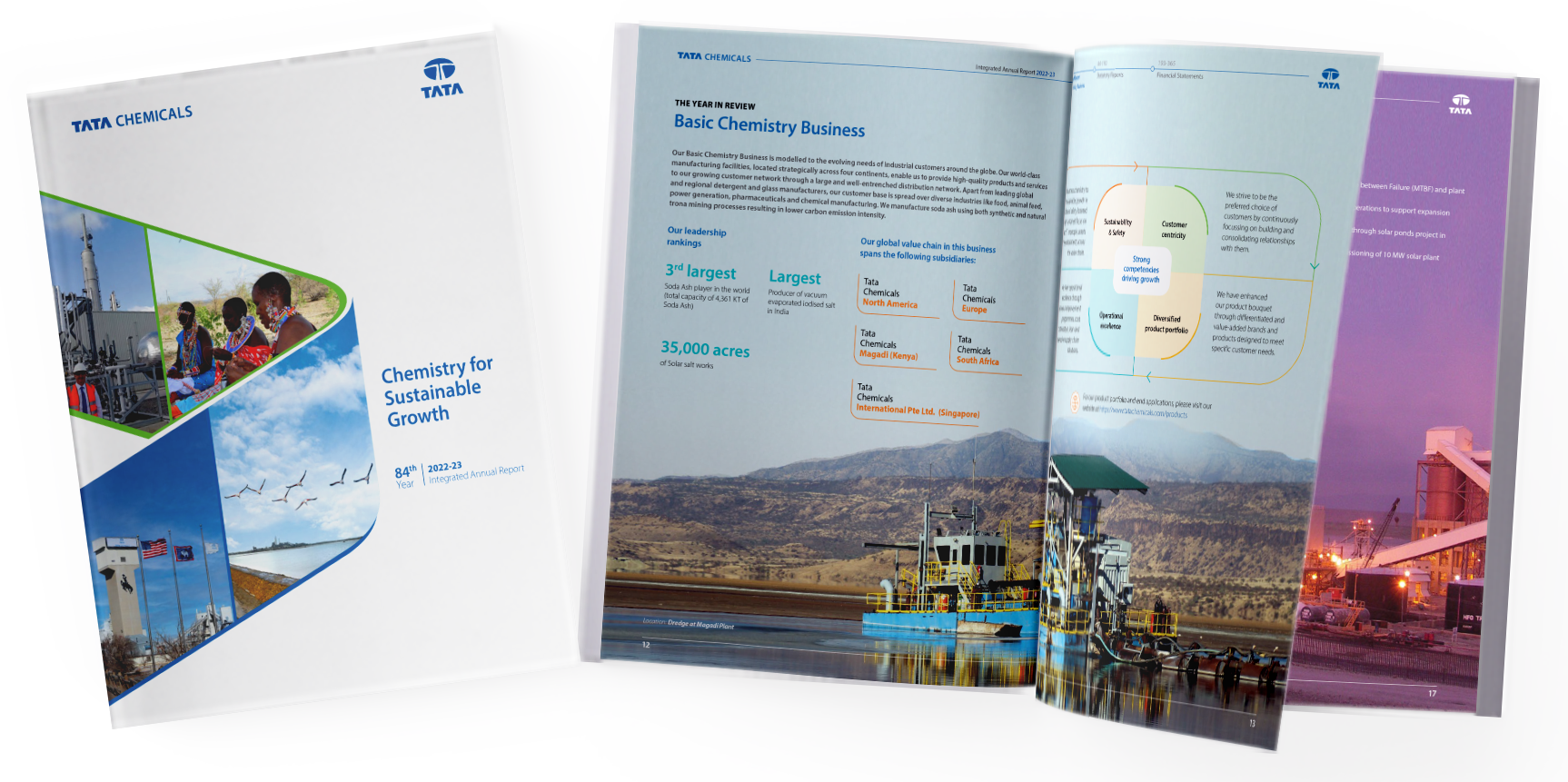Our commitment
We are committed to integrate environmental, social and ethical principles into our business, which is central to improving the quality of life of the communities we serve globally and enhancing long-term stakeholder value.
We aspire for global sustainability leadership in the sectors in which we operate.
To achieve this, we will:
- Constitute a governance structure to oversee our sustainability commitments.
- Identify relevant and material sustainability issues.
- Develop comprehensive sustainability strategies with goals, targets, mitigation and adaptation action plans to address them under the aegis of our board.
- Undertake natural and social capital valuation to assess business risks.
- Report in line with global reporting frameworks.
 Climate change actions
Climate change actions
- Establish and promote consistent climate policy across the value chain and pursue science based targets.
Methodology
- Reduce in-plant specific emissions of TCO2/MT products.
- Grow existing businesses in a carbon conscious manner.
- Plan and implement climate change adaptation strategies.
 Resource conservation: Energy
Resource conservation: Energy
- Energy efficiency as a part of responsible manufacturing index (RMI).
- Promote renewables and fuel efficiency in the community and with farmers.
Methodology
- Formalised energy audits driving energy efficiency programmes.
- Identify and promote use of renewable energy like solar/wind energy.
- Energy efficient cook stoves, solar lighting and pumps, farming techniques.
 Resource Conservation: Water
Resource Conservation: Water
- Water in the value chain: Be net fresh water neutral in the next five years at manufacturing sites.
- Safe drinking water: Reach 25 million people in the next five years.
Methodology
- Through conservation, reuse, recycling, harvesting and water management.
- Through the clean water initiative, the social enterprise Tata Swach.
 Waste management
Waste management
- Promoting reduction, reuse and recycling of packaging and other wastes.
Methodology
- 100 percent packaging material will either be recyclable or reusable by 2020. Where not possible, make arrangements for equivalent collection and safe disposal.
- Cement plant as waste management plant.
- Waste water discharge as per norms and targets.
 Nature & biodiversity
Nature & biodiversity
- Responsible mining/supply chain.
- Species conservation.
- Commit to remove commodity driven deforestation in supply chains.
Methodology
- Establish bio-diversity impacts across the value chain with zero deforestation.
- Promote plantation and greening: Establish centre for excellence in wetlands and marine bio-diversity conservation.
- Partner for species conservation.
 Product stewardship
Product stewardship
- Supply chain
- Responsible care/customer education.
- Life cycle assessment (cradle to grave).
Methodology
- Adherence and monitoring of social and environment standards.
- Partner with suppliers and customers for advocacy and action.
- Responsible care across the enterprise. Nutritional foundation to drive education and support.
- Carry life cycle assessment across enterprise.
 Empowering communities
Empowering communities
- Empowerment: Community based organisations.
- Inclusion: Women, socially and economically backward communities.
- Technology and innovation.
- Volunteering
- Community connect/community grievance management.
Methodology
- Preserve bio-diversity: Coastal and marine.
- Raise economic and social living through enterprises like Okhai, Uday and Swach.
- Develop skills through programmes like Tata STRIVE.
- Focus on water and nutrition.
- Look forward for integrated development programmes – BEACON.
- Eco-tourism






